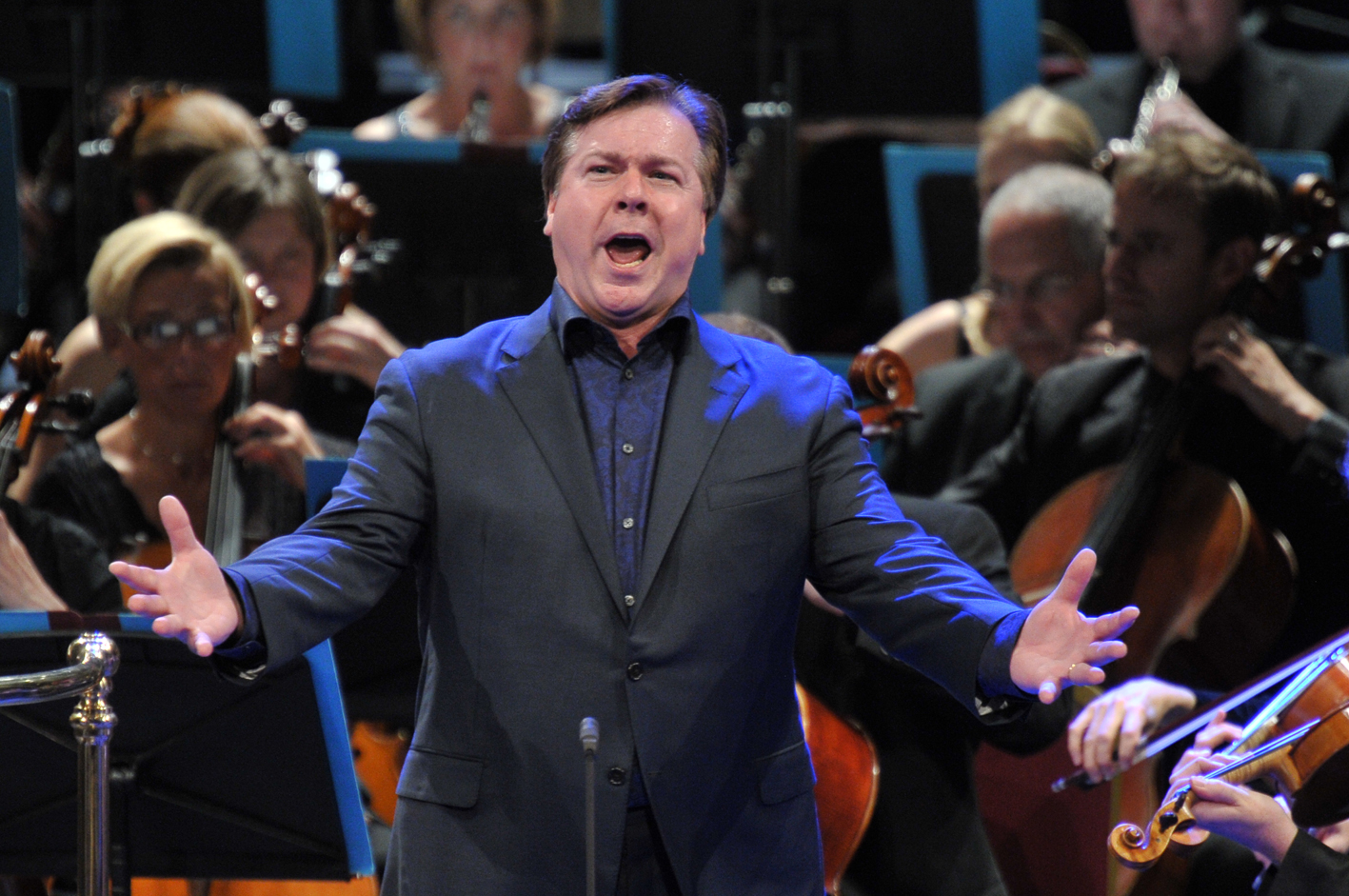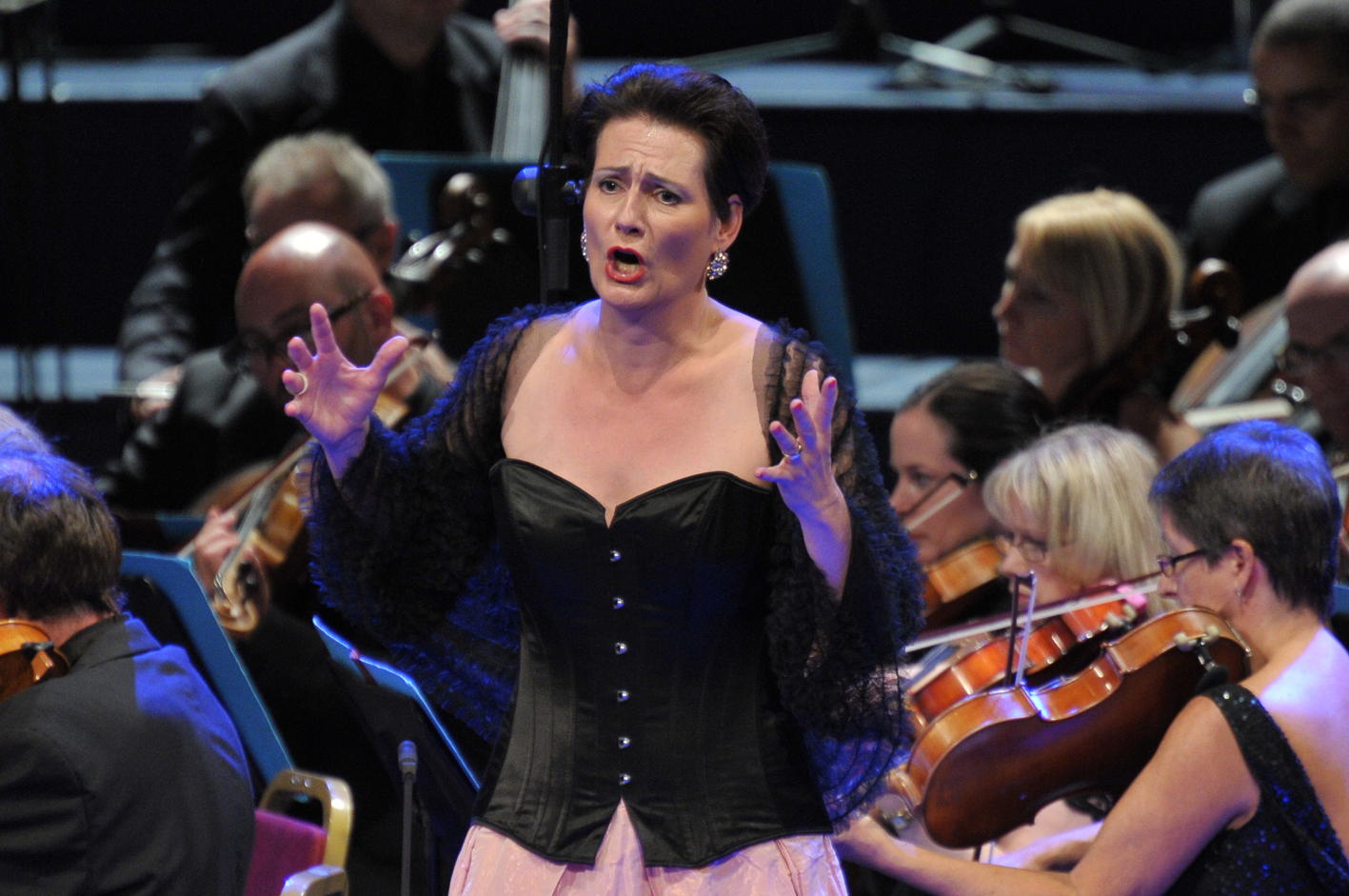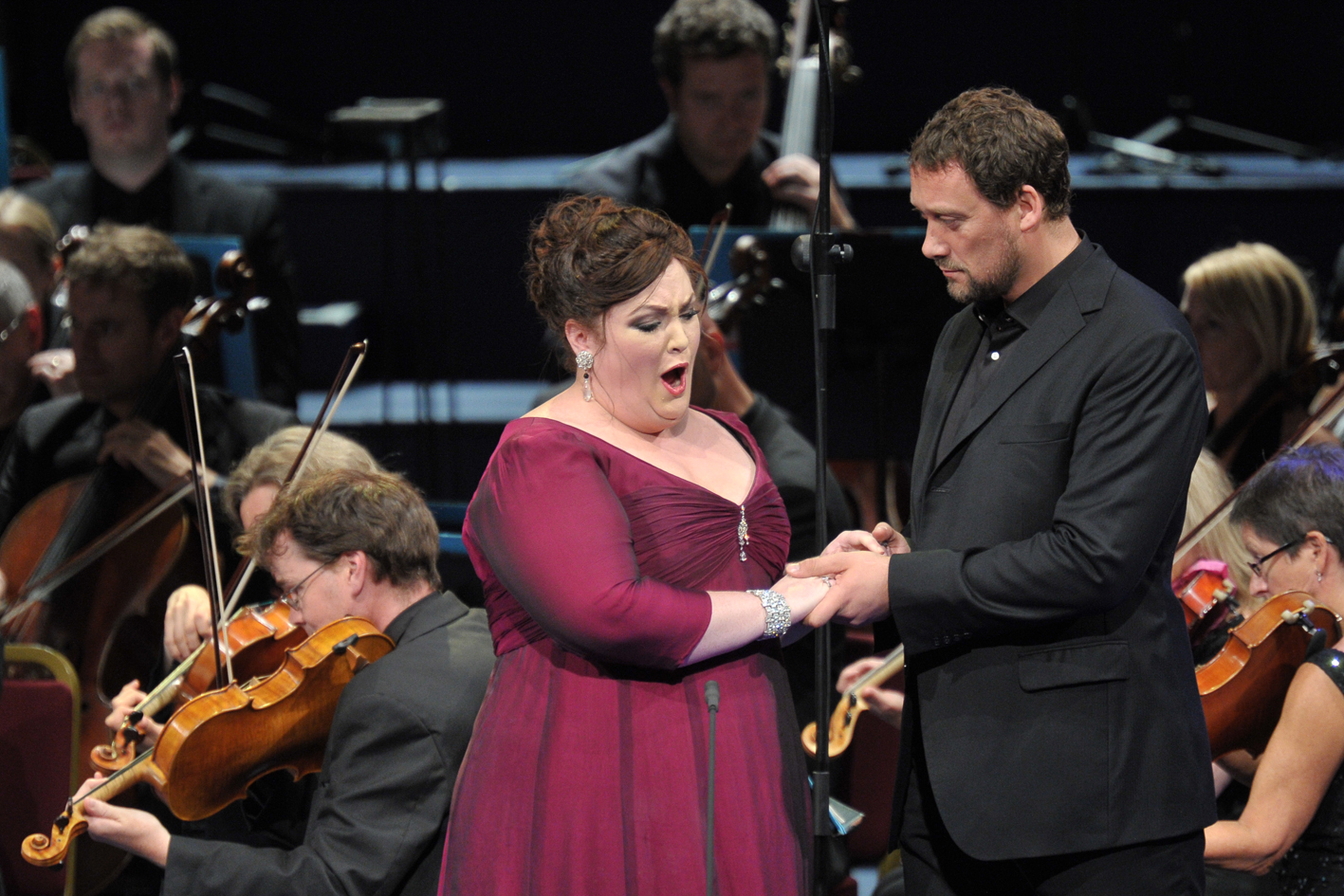Prom 29: Tannhäuser, BBC Scottish Symphony Orchestra, Runnicles | reviews, news & interviews
Prom 29: Tannhäuser, BBC Scottish Symphony Orchestra, Runnicles
Prom 29: Tannhäuser, BBC Scottish Symphony Orchestra, Runnicles
The great Scots conductor matches Barenboim in another Wagner bicentenary spectacular

On the one occasion I went to Bayreuth, I made the mistake of seeing The Flying Dutchman and Lohengrin after the best of Ring cycles. At the Proms we’ve had a week of serious Wagnerian withdrawal symptoms, so Tannhäuser was never going to feel like too much or too little of a good thing.
Heretical it might be to say so, but in many ways Runnicles seems to me a more authentic interpreter of late romantic music. His well drilled BBC Scottish Symphony Orchestra may not be encouraged to spotlight anything like as many hallucinogenic details as Barenboim’s Berlin Staatskapelle did last week - and of course there are fewer in Tannhäuser - but the flow is more organic, the rubato more natural. Every effect has still been carefully thought through. Runnicles' strings are lightweight in comparison to Barenboim's but projected every line with infallible articulation. The horns at the start of the overture made just as much of an impression as Barenboim's at the bottom of the Rhine and the sonorities of offstage or upstage brass were every inch as trenchant as the ones we thought so unsurpassable from the Berliners.
 In many respects, it was business as usual. I hope we’ve all come to admire just how much vividness the Proms’ resident Wagner-in-concert director Justin Way brings to bear on singers relating to one another without scores. This time he was perhaps saddled with performers of less even dramatic abilities, but all eventually rose to the challenge. That was especially true of Robert Dean Smith (pictured above), making his second visit to the Proms this season. His essential qualities can easily be missed in the rush to demand a Wagnerian tenor who sacrifices himself on the altar of high intensity. This is a lyric voice pushed to its outer limits, but he can do the job.
In many respects, it was business as usual. I hope we’ve all come to admire just how much vividness the Proms’ resident Wagner-in-concert director Justin Way brings to bear on singers relating to one another without scores. This time he was perhaps saddled with performers of less even dramatic abilities, but all eventually rose to the challenge. That was especially true of Robert Dean Smith (pictured above), making his second visit to the Proms this season. His essential qualities can easily be missed in the rush to demand a Wagnerian tenor who sacrifices himself on the altar of high intensity. This is a lyric voice pushed to its outer limits, but he can do the job.
As the minstrel torn between sexy Venus and holy Elisabeth, he husbands his resources but always makes sense of line and text. Having wished for more from him in his bid to quit the Venusberg – surely it was telling that this Tannhäuser kept his jacket on in the pagan bordello – we got it in the crucial and insanely long Act Three narrative of the pilgrim’s journey to Rome and his crushing rejection by an unholy Pope. Tenors who might have laid all on the line earlier would be wilting by this stage; not Dean Smith. We’re luckier to have him than many people realize.
 Even so, there were no prizes for guessing the star voices of the evening: first, and uniquely, the stupendous new bass on the block, Estonian Ain Anger, easy of phrase and charismatic of manner in what is surely Wagner’s dullest role for that voice. But you’d happily listen to this Thuringian Landgrave read out the guest-list for his Wartburg song competition. Mezzo Daniela Sindram (pictured above) burnt up the stage with her urgently pleading love goddess: looking suitably dominatrixy in a fetching bodice, striking of feature and secure in every note from cutting chest voice to incandescent top. I can’t wait to see her Octavian in Der Rosenkavalier.
Even so, there were no prizes for guessing the star voices of the evening: first, and uniquely, the stupendous new bass on the block, Estonian Ain Anger, easy of phrase and charismatic of manner in what is surely Wagner’s dullest role for that voice. But you’d happily listen to this Thuringian Landgrave read out the guest-list for his Wartburg song competition. Mezzo Daniela Sindram (pictured above) burnt up the stage with her urgently pleading love goddess: looking suitably dominatrixy in a fetching bodice, striking of feature and secure in every note from cutting chest voice to incandescent top. I can’t wait to see her Octavian in Der Rosenkavalier.
Equal first with these two were the infinitely adaptable men and women from the "Concert Association" of the Deutsche Oper Berlin, where Runnicles is Music Director. And what a role, or roles, they have to play. Quality voices were apparent from the start as siren sounds billowed down from the gallery; the two pilgrim choruses rose from silky pianissimos to focused thunder. And Runnicles was immensely helpful in keeping the infallibly tuneful Entry of the Guests in Act Two on the move. Here in the Wartburg, cleverly paralleled with the Albertine colosseum as the hall's motifs flashed up on the ever-helpful strip at the back, we met Heidi Melton’s Elisabeth (pictured below with Anger's Landgrave). Luminous with the upper-register big guns and a sympathetic actress – as the Act Three dumb show of her wait for Tannhäuser's return from Rome subtly stressed – Melton has one flaw, a slightly too fast vibrato to keep the flame of the saintly lady’s slower music steady.
 In that she was a match for Christoph Pohl’s trusty Wolfram, an unusual voice with dignity to spare in the justly famous aria to the evening star (though Christian Gerhaher’s Royal Opera performance is hard to shift in the mind for those of us lucky enough to have seen it). The blokes who come in from their hunt to find Tannhäuser newly returned to earth looked like an identity line up of bouncers. Four of the six seemed to know exactly what was going on, and two didn’t, but all sounded great in ensemble.
In that she was a match for Christoph Pohl’s trusty Wolfram, an unusual voice with dignity to spare in the justly famous aria to the evening star (though Christian Gerhaher’s Royal Opera performance is hard to shift in the mind for those of us lucky enough to have seen it). The blokes who come in from their hunt to find Tannhäuser newly returned to earth looked like an identity line up of bouncers. Four of the six seemed to know exactly what was going on, and two didn’t, but all sounded great in ensemble.
Just one other dress quibble: Hila Fahima, a vision in red, looked like another Venus rather than a humble shepherd boy (it should surely be possible to find a strong central European treble for the part, though she sang it with spirit). The spatial tricks of her/his pipe/cor anglais in counterpoint with those splendid antiphonal resounding horns, along with the subterranean Venusberg music in the final battle for Tannhäuser’s soul, once again showed that Wagner’s sense of stagecraft can become a thing of wonder in the Albert Hall. These Wagner performances have all made me fall in love again with this often infuriating venue’s possibilities, and it’s helped to have conductors like Barenboim and Runnicles who know exactly what to do with it.
rating
Share this article
The future of Arts Journalism
You can stop theartsdesk.com closing!
We urgently need financing to survive. Our fundraising drive has thus far raised £49,000 but we need to reach £100,000 or we will be forced to close. Please contribute here: https://gofund.me/c3f6033d
And if you can forward this information to anyone who might assist, we’d be grateful.

Subscribe to theartsdesk.com
Thank you for continuing to read our work on theartsdesk.com. For unlimited access to every article in its entirety, including our archive of more than 15,000 pieces, we're asking for £5 per month or £40 per year. We feel it's a very good deal, and hope you do too.
To take a subscription now simply click here.
And if you're looking for that extra gift for a friend or family member, why not treat them to a theartsdesk.com gift subscription?

Add comment